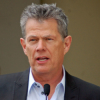David Foster

David Foster
David Walter Foster, OC, OBC, is a Canadian musician, record producer, composer, songwriter, and arranger. He has been a producer for musicians including Alice Cooper, Christina Aguilera, Andrea Bocelli, Toni Braxton, Michael Bublé, Chicago, Natalie Cole, The Corrs, Céline Dion, Jackie Evancho, Kenny G, Josh Groban, Whitney Houston, Jennifer Lopez, Kenny Rogers, Seal, Rod Stewart, Donna Summer, Olivia Newton-John, Madonna, Barbra Streisand, and Westlife. Foster has won 16 Grammy Awards from 47 nominations. He is the chairman of Verve Records...
NationalityCanadian
ProfessionMusic Producer
Date of Birth1 November 1949
CityVictoria, Canada
CountryCanada
An ad that pretends to be art is – at absolute best – like somebody who smiles warmly at you only because he wants something from you.
It seems like the big difference between good art and so-so art lies somewhere in the art's heart's purpose, the agenda of the consciousness behind the text. It's got something to do with love, with having the discipline to talk out of the part of yourself that can love instead of the part that just wants to be loved.
This is what the real, no bullshit value of your liberal arts education is supposed to be about: how to keep from going through your comfortable, prosperous, respectable adult life dead, unconscious, a slave to your head and to your natural default setting of being uniquely, completely, imperially alone day in and day out,
Commerce and art are natural enemies. And also, the enemy of good is great. And the enemy of great is good, so there's this huge juggling that's going on all the time.
I am uncompromising to the point of huge dissension in the studio. And it's served me very well. My theory and my philosophy is, 'Compromise breeds mediocrity.' Obviously, you have to pick your battles, and the more success an artist has, the more they want to be involved in their own career, which is not necessarily a good thing.
An ad that pretends to be art is -- at absolute best -- like somebody who smiles warmly at you only because he wants something from you. This is dishonest, but what's sinister is the cumulative effect that such dishonesty has on us: since it offers a perfect facsimile or simulacrum of goodwill without goodwill's real spirit, it messes with our heads and eventually starts upping our defenses even in cases of genuine smiles and real art and true goodwill. It makes us feel confused and lonely and impotent and angry and scared. It causes despair.
Postmodern irony and cynicism's become an end in itself, a measure of hip sophistication and literary savvy. Few artists dare to try to talk about ways of working toward redeeming what's wrong, because they'll look sentimental and naive to all the weary ironists. Irony's gone from liberating to enslaving. ... The postmodern founders' patricidal work was great, but patricide produces orphans, and no amount of revelry can make up for the fact that writers my age have been literary orphans throughout our formative years.
It can become an exercise in trying to get the reader to like and admire you instead of an exercise in creative art.
Good writing isn’t a science. It’s an art, and the horizon is infinite. You can always get better.
What the really great artists do is they're entirely themselves. They're entirely themselves, they've got their own vision, they have their own way of fracturing reality, and if it's authentic and true, you will feel it in your nerve endings.
Lucky people develop a relationship with a certain kind of art that becomes spiritual, almost religious, and doesn’t mean, you know, church stuff, but it means you’re just never the same.
Like so many other nerdy, disaffected young people of that time, I dreamed of becoming an 'artist', i.e., somebody whose adult job was original and creative instead of tedious and dronelike.
We will, of course, without hesitation use art to parody, ridicule, debunk, or criticize ideologies.
Entertainment provides relief. Art provokes engagement.